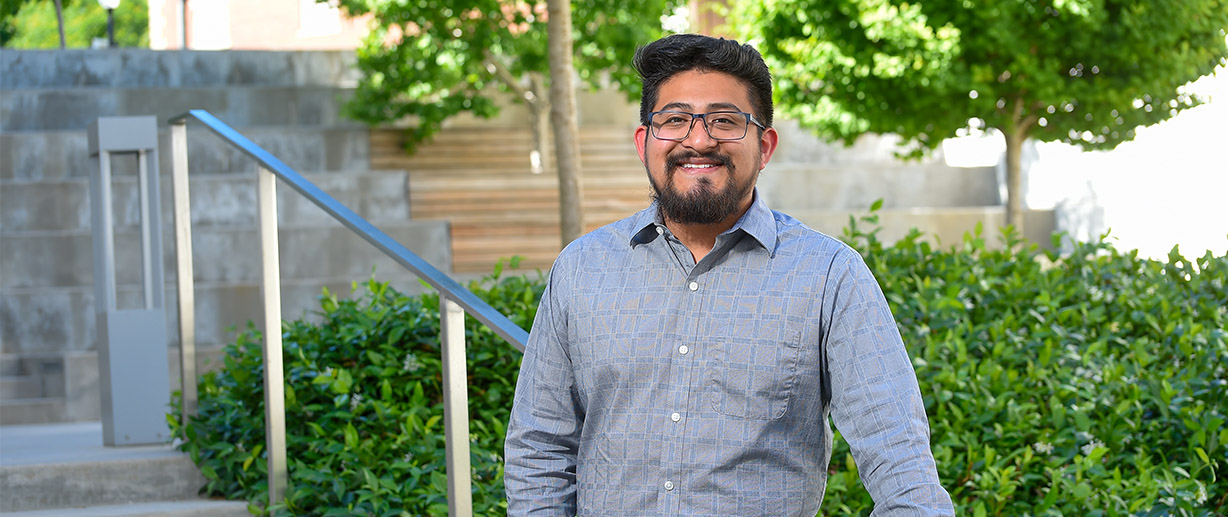Wofford College’s Presidential International Scholars are often tested on their abilities and willingness to be flexible and adapt to changing circumstances. That’s understandable considering international travel is involved, and many times scholars are trying to navigate across developing countries.
Shortly after being named the scholar for the 2021-22 academic year, Hector Ortiz ’22 faced challenges stateside. The COVID-19 pandemic would shape and change the countries he planned to visit for research. Argentina and South Africa were his first choices.
“Things were uncertain and changing,” says Ortiz, who conducted research in Kenya and Ecuador once it was clear the pandemic would interfere with his initial plans. “I knew from the beginning there could be a change in plans.”
Ortiz, a triple major from Saluda, South Carolina, studying biology, philosophy and Spanish, will discuss his research during a presentation at 11 a.m. on Saturday in the Rosalind Sallenger Richardson Center for the Arts during Commencement weekend. It will be part of the Senior Showcase, which will include exhibits of art, research and more from the Class of 2022.
Ortiz’s research focused on the relationship between public health and culture. Visiting other countries during a pandemic also offered insight on how a country’s culture influenced its response. He described Ecuador and Kenya as being “more collective cultures than you might experience in the U.S.”
He observed people carefully following pandemic measures involving masks, the use of hand sanitizer and social distancing, especially while in Ecuador.
“It’s hard to believe this strange new disease existed, but I saw how people protected each other,” Ortiz says. “People in urban, populous areas took care of friends and looked out for each other by practicing social distancing, wearing masks and using hand sanitizer. It wasn’t really isolating, but it was caring and loving.”
Ortiz spent the fall semester in Ecuador and visited hospitals and research facilities. During a visit to a birthing center near mountains, he learned how women have the option of delivering through traditional approaches for the country, including vertical labor and midwifery, or Western delivery methods up until the time of delivery. Ecuador also provides free health care, including medication.
“It’s hard to say what a perfect medical system looks like, but I can see the sense of relief with some patients and families,” says Ortiz of Ecuador’s free health care.
Ortiz spent Interim in Kenya. While there, he learned how the United States funded treatment for tuberculosis and HIV. Healthcare policies in Kenya also seemed to be influenced by British, Chinese and U.S. companies.
After graduation, Ortiz will pursue a master’s degree in precision health from the University of Chicago. The program will focus on better predicting, managing, and treating disease by looking at genetics, behaviors and the environment.
“I think the way people live directly affects health,” Ortiz says. “Once you experience and live in certain communities you see what impacts them. You’re living in a situation where you have to adjust, and culture plays a part.”
